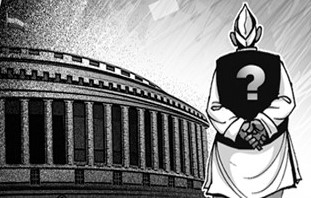Let’s aim for transparent funding trails and reduced influence of money on poll outcomes
While “political party” is not entirely absent as a mention in India’s Constitution, it finds space only in the 10th Schedule, which was added in 1985, brought about by the introduction of an anti-defection law. Otherwise, could it be that the founding fathers of the republic did not conceive of a central role for political parties? In his historic and concluding speech to the Constituent Assembly, when the final draft of the Constitution was adopted, B.R. Ambedkar famously said that however good a constitution may be, it can be rendered bad if the people called to work it are a bad lot. Conversely, even a badly drafted constitution can work out well in the hands of good people. Thus, it is not the Constitution per se, but rather the working of it through the organs of the state that determines whether democracy flourishes. And this depends ultimately on the people and the political parties they form as instruments to carry out their wishes. Thus, Ambedkar’s speech does mention political parties as instruments of expression of the popular will. But parties were not supposed to become the super powerful Leviathans that they have. It is wholly plausible that an elected legislature can choose a set of people to run the government without any reference to the concept of a political party. Indeed, once elected to the House, a member represents neither solely his or her party, nor solely a geographical constituency, but the entire people of India. This hypothesis of a democracy run sans political parties may sound hopelessly utopian but is theoretically possible. The missing emphasis on the idea of a political party in the Constitution is not an accident.
You can read more here: https://www.livemint.com/opinion/online-views/transparency-in-poll-funding-could-lead-to-a-national-cleanup-11711552801220.html.
The article was originally published in Live Mint.
